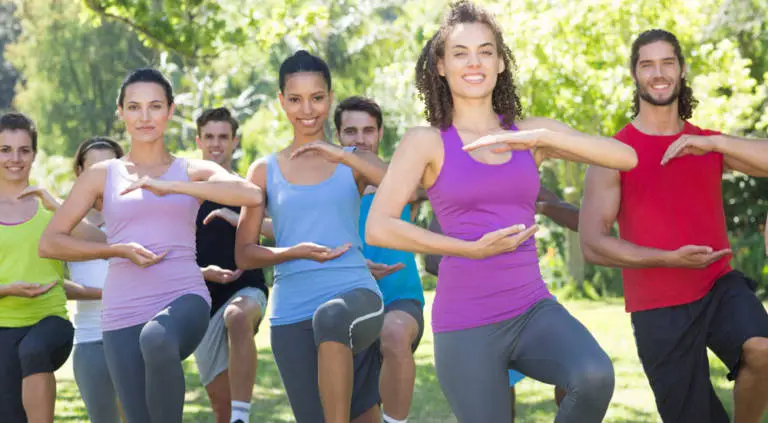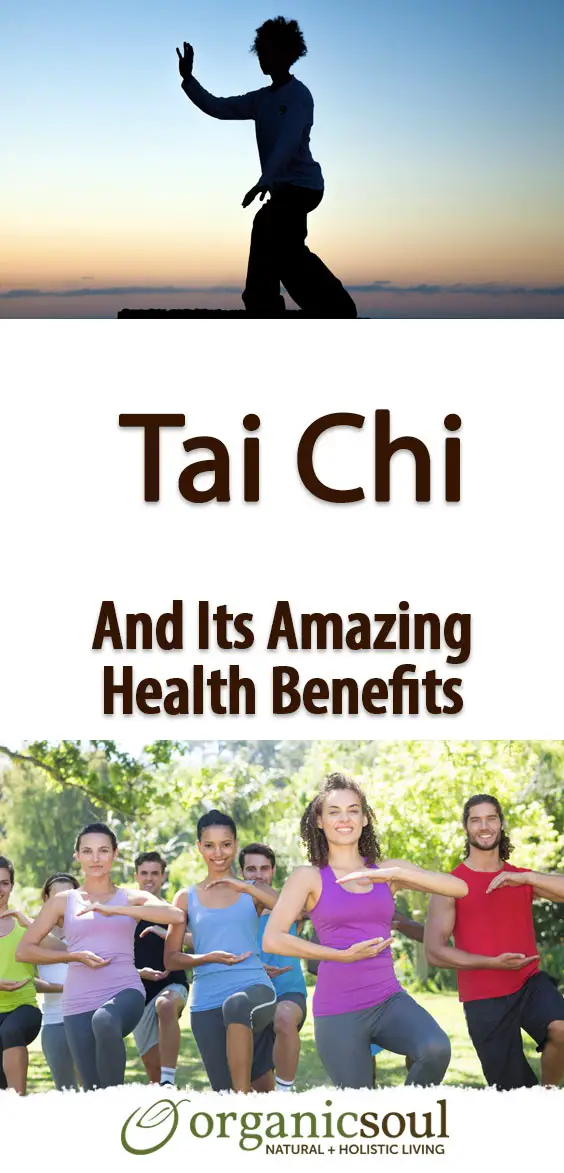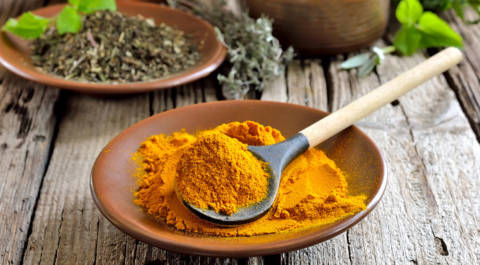
Tai chi is a type of martial art that has been practised for centuries, especially in the Eastern world. However, it's not the fast, energetic and powerful type of martial arts that may come to mind, especially if you like karate movies. In contrast, tai chi is graceful and elegant, and many people practice it to help themselves feel more centered.
Like Organic Soul on Facebook
Keep reading to learn more about this technique and why you should think seriously about practising it for the associated health benefits.
Various Types Of Tai Chi
There are numerous ways to practice tai chi. The most popular of those are referred to as tai chi chin, yang and wu. Each of those has different movements to practice, either in a simplified form or traditional form. Some of the traditional forms of tai chi have more than 100 movements in the traditional form.
If you're not yet familiar with tai chi and are looking to dive into the possibility of making it a part of your life, it's a good idea to start with one of the simplified forms and advance to the traditional form if and when you feel confident.
Basic Commonalities Between Tai Chi Choices
There are some subtle differences between the different types of tai chi, including the proper stances. However, there are some things that remain the same no matter which type of tai chi you do.
For example, while taking part in tai chi, you'll always strive to have a focused mind and breathe deeply. It's also good to keep your muscles relaxed, and never tense. Furthermore, there's a commonality in all the movements performed for tai chi in that they're all named for the ways animals move.
Appropriate For Almost Anyone
Unlike some types of physical exercise, tai chi is a great choice for people who may not be able to exercise more rigorously because they are in wheelchairs or recovering from injuries or illnesses. Tai chi is a highly adaptable discipline, so no matter your current ability or fitness level, it's easy to do tai chi in a way that works best for you.
Widely-Used Terminology Related To Tai Chi
As mentioned earlier, tai chi is an ancient practice, and it was more popular in Eastern culture before it reached the Western world. However, you don't have to be familiar with Eastern belief systems and ways of life to get the maximum benefits of tai chi.
There are, however, a few words you'll likely hear while studying tai chi, and it's smart to at least become acquainted with them. The first two are known as yin and yang. They're opposing elements thought to make up the universe and should be kept in harmony for best results. Practitioners say tai chi helps restore balance to yin and yang.
You'll also probably hear about qi when reading about tai chi. Qi is the body's energy force, and it's thought tai chi can correct qi flow blockages and make the body more balanced.
Get Better Balance And Muscle Control
Two of the often-mentioned benefits of tai chi are that it improves balance and helps people to have better muscle control. The activity was not designed to be an aerobic workout because it doesn't raise the heart rate and respiration and is instead defined by slow, deliberate movements.
Perhaps the benefits and the associated way to practice tai chi are two of the top reasons why so many health professionals recommend it as an exercise for the elderly. Scientific studies have found it can reduce their fall risk by 45 percent.
Experts say the slow movements of tai chi could give onlookers the impression that they're not working very hard. However, depending on the type a person performs, they could get exercise benefits that are the equivalent of a brisk walk and some types of weight training.
The reason why it works so well for preventing falls is that it targets all the major areas or functions of the body that are needed to help a person stay standing and not fall, such as flexibility, range of motion and leg strength.
All those things tend to get worse as a person ages, and since tai chi is a gentle form of exercise, it's an excellent fit. However, athletes often turn towards tai chi too, especially since most of them would agree good balance and appropriate levels of muscle control help them do better in their respective athletic endeavours.
Prevent Injuries And Pain
With the above sentiment in mind, it probably makes sense why athletes and dancers often practice tai chi too as a way to safeguard themselves against the injuries and pain commonly suffered by people who live very active lifestyles.
Reportedly, tai chi not only helps prevent muscle, joint and spinal injuries in these active individuals but helps them recover more quickly from such ailments when they do occur.
Tai Chi Could Help You Think More Clearly And Be Less Stressed
Thanks to the fast-paced lives many people lead, they find themselves consistently stressed out at such a high level that feeling upset is a constant concern rather than something they experience on rare occasions.
However, tai chi practitioners say that by getting involved with the technique and making it a part of their everyday lives, people could find they don't become stressed as much and that they think more clearly. The latter benefit, in particular, is probably due to findings that say tai chi brings about positive changes in the brain.
One study of seniors showed that after performing ta chi for 40 weeks, they actually got larger brains. Another study, which was related to using tai chi for mindfulness and stress relief purposes, showed positive brain changes related to the areas involved in learning and memory, but after only two months.
Health researchers also know that practising any form of meditation, such as the one associated with tai chi, improves the brain's neuroplasticity. In other words, it makes the brain more able to rewire itself based on experiences.
That means over time, when you're exposed to stressful situations, you'll be more able to cope with them by showing good emotional responses rather than poor ones.
 Tai Chi Helps Arthritis Sufferers Stay Active
Tai Chi Helps Arthritis Sufferers Stay Active
An arthritis diagnosis can be extremely frustrating and disappointing for people who characteristically stayed active, but find they can no longer do the things they once loved because of pain.
Fortunately, though, tai chi offers a safe and low-impact workout for arthritis patients. Although it's smart to ask your doctor before moving ahead with a plan to begin tai chi, experiences from other people suggest it's a good starting point if you want to keep moving without pain.
Hopefully, it's now clear why people around the world look to tai chi to supplement their lives. Consider giving it a try and seeing if you experience some of the same health benefits mentioned above, plus others.













